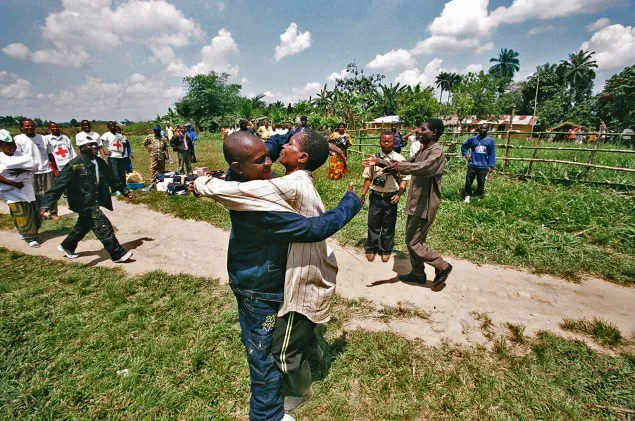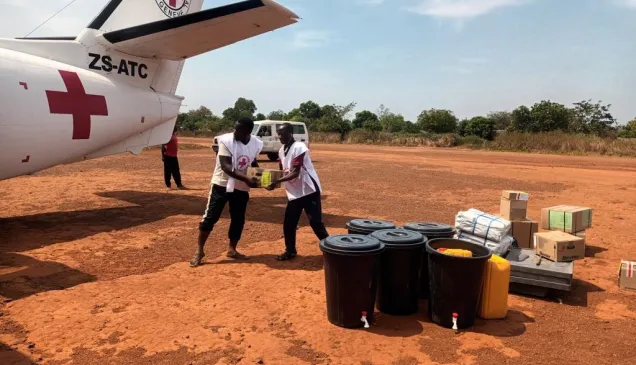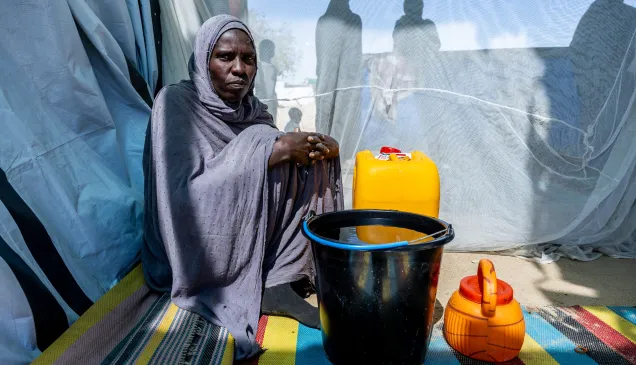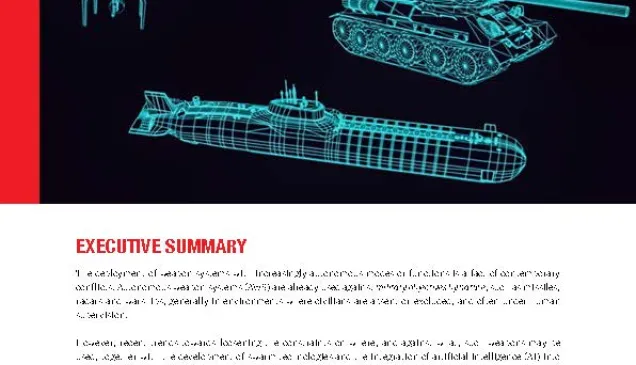On 27 September 2017, the ICRC convened a live-streamed panel of experts at the Humanitarium to discuss how to change the narrative on international humanitarian law (IHL), by thinking of new ways of talking about IHL. Based on the promotion of instances of respect, the panel reflected on new approaches and initiatives to reaffirm the relevance and usefulness of IHL and improve respect for it. The event is part of ICRC's Conference Cycle on Generating respect for the law.
On this occasion, the ICRC launched the "IHL in Action: Respect for the Law on the Battlefield" online platform, which compiles real life instances of compliance with the law. The project is designed to provide some factual evidence that helps reframe the perception of IHL being an ineffective set of rules, by showcasing situations in which the law is actually respected.
Moderator
- Vincent Bernard, Editor-in-Chief of the International Review of the Red Cross, ICRC
Panelists
- H.E. Ambassador Beatriz Londoño Soto, Permanent Representation of Colombia, United Nations
- Dr. Helen Durham, Director of International Law and Policy, ICRC
- Dr. Robert Heinsch, Assoc. Prof, Grotius Center for International Legal Studies / Kalshoven-Gieskes Forum on International Humanitarian Law, Leiden University
- Michael Schmitt, Professor of International Law, University of Exeter, Charles H. Stockton Professor, Stockton Center, US Naval War College
Panel discussion
Vincent Bernard, Editor-in-chief of the International Review of the Red Cross, introduced the event by stating that there is a tendency to doubt the impact of the law in today's conflicts. "In order to alter this discourse of pessimism and image of erosion of IHL, the ICRC started a project with academia to collect "success stories" where the law is respected. It is not about being naïve, but about trying to change the perception and gather best practices on how to respect the law", Vincent Bernard continued.
Juliane Garcia Ravel, Law and Policy Research Officer at the ICRC, presented the IHL in action online platform, which contains IHL "success stories" gathered by four IHL clinics. "This platform seeks to show that there are daily evidence of compliance with IHL. It does not mean to minimize the violations that occur today, but rather to invite to a change of perspective on how we teach, talk about and research IHL".
Dr Robert Heinsch, Associate Professor at the Grotius Center for International Legal Studies and Kalshoven-Gieskes Forum on International Humanitarian Law at Leiden University, presented the team of four IHL clinics, from Italy, the Netherlands, the US and Israel. During the research project, the clinics and students involved consulted a variety of publicly available documents, such as open public sources on actions by government forces or non-state actors, , statements, legislations, NGO reports, press releases, blogs and social media. Dr Robert Heinsch talked about the challenges with gathering these "success stories", such as the difficulty of finding information about practice in public sources, language barriers, actual proof of compliance and cases of partial compliance (e.g. when compliance comes from violations that precipitated the need for such change of behavior). Nevertheless, 45 conflict situations were analyzed, and examples of respect were found by both State parties,armed non-state actors. "This project is a reminder that reality is more nuanced than what is generally reported – compliance can be found in the conduct of hostilities, treatment in detention, protection and care, humanitarian relief and assistance, as well as training and dissemination".
Ambassador Londoño Soto, Permanent Representative of Colombia to the United Nations, talked about how IHL played a role during the conflict and peace process in Colombia. "In Colombia, a country that has endured conflict for more than 50 years, the dream of peace has been constant", the ambassador said, adding that "even in times of war, the light of reason shall endure". She spoke about how IHL is essential to build the basic condition for peace, as it is the shared language of the parties to a conflict. In Colombia, in June 2011, President Santos sanctioned the victims' law, a critical part of the peace building process, as it meant that the State recognized the existence of an internal conflict. It also recognized the rights to reparation of the victims. The components of IHL helped create trust and confidence that was necessary for both parties and a final peace agreement was signed in November 2016. "Colombia is a strong example that IHL does not only prove to be useful to rule conflicts, but also to rule their ending".
Professor Michael Schmitt then talked about how the law impacts military operations on a tactical level. He shared the example of computer modelling designed in the US Army to estimate and reduce collateral damage of any planned attack through complex calculations. By bringing empirical data into the process, civilian casualties can be estimated and minimized. "In the cases where collateral damage is unavoidable, the military calculates how many people would be hurt by, for example, looking at the nature of a building; is it a home, a hospital? Is it market day? A religious holiday? All these factors are taken into consideration before carrying out an operation. If the estimated number of civilian casualties is higher than the "non-combatant value" set by the authorities, the operation cannot be carried out".
Helen Durham, Director of International Law and Policy at the ICRC, presented the ICRC's views on the relevance of IHL in today's conflict. "The legal framework has never been stronger than it is today; we have more treaties, cases and jurisprudence, and a high understanding in the public. What needs to be addressed is the credibility gap - what people see is mostly violations". She emphasized how important it is to articulate the immediate and long term benefits of respecting IHL and to promote more compelling non legal arguments, particularly at the policy level. "We need to make it clear that IHL is not only a part of humanity's common heritage, but something that does have an impact on the lives of thousands of people involved in armed conflicts".




